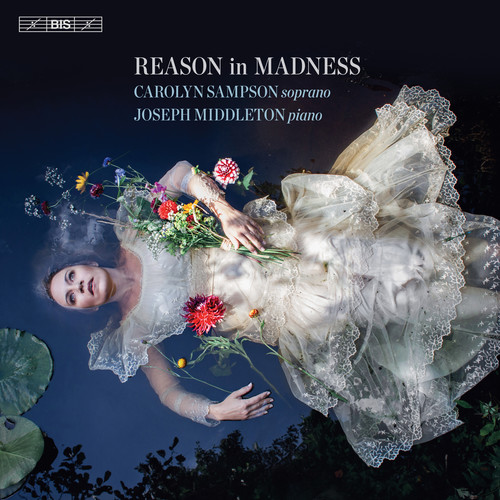Show results for
Deals
- 4K Ultra HD Sale
- 50s Films Sale
- Action Sale
- Alternative Rock Sale
- Anime sale
- Award Winners Sale
- Bear Family Sale
- Blu ray Sale
- Blues on Sale
- British Sale
- Christmas in July
- Classical Music Sale
- Comedy Music Sale
- Comedy Sale
- Country Sale
- Criterion Sale
- Electronic Music sale
- Folk Music Sale
- Horror Sci fi Sale
- Kids and Family Sale
- Metal Sale
- Music Video Sale
- Musicals on Sale
- Mystery Sale
- Naxos Label Sale
- Page to Screen Sale
- Paramount Sale
- Rap and Hip Hop Sale
- Reggae Sale
- Rock
- Rock and Pop Sale
- Rock Legends
- Soul Music Sale
- TV Sale
- Vinyl on Sale
- War Films and Westerns on Sale

Reason in Madness
- (Hybrid SACD)
- Format: SACD
- Release Date: 4/5/2019

Reason in Madness
- (Hybrid SACD)
- Format: SACD
- Release Date: 4/5/2019
- Label: Bis
- UPC: 7318599923536
- Item #: 2150853X
- Genre: Classical
- Release Date: 4/5/2019

Product Notes
Throughout history men have feared madwomen, burning them as witches, confining them in asylums and subjecting them to psychoanalysis - yet, they have also been fascinated, unable to resist fantasizing about them. For their new release, Carolyn Sampson and Joseph Middleton have created a programme that explores the responses of a variety of composers to women whose stories have left them vulnerable and exposed. As a motto they have chosen an aphorism by Nietzsche: 'There is always some madness in love, but there is also always some reason in madness.' Brahms' Ophelia Songs, composed for a stage production of Hamlet, appear next to those by Richard Strauss and Chausson, while Ophelia's death is described by both Schumann (in Herzeleid) and Saint-Saëns. Goethe's mysterious and traumatized Mignon appears in settings by Hugo Wolf as well as Duparc, while his ill-used Gretchen grieves by her spinning-wheel in Schubert's matchless setting. Sadness and madness tip into witchery and unbridled eroticism with Pierre Louÿs's poems about Bilitis, set by Kœchlin and Debussy. Sampson and Middleton end their recital as it began, with a suicide by drowning: in Poulenc's monologue La Dame de Monte-Carlo, the elderly female protagonist has been unlucky at the gambling tables and decides to throw herself into the sea.

